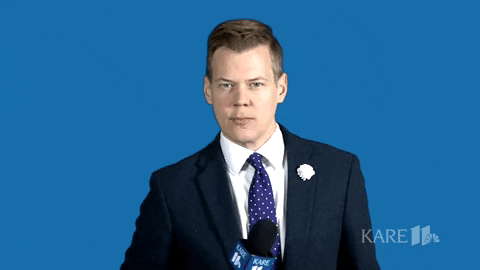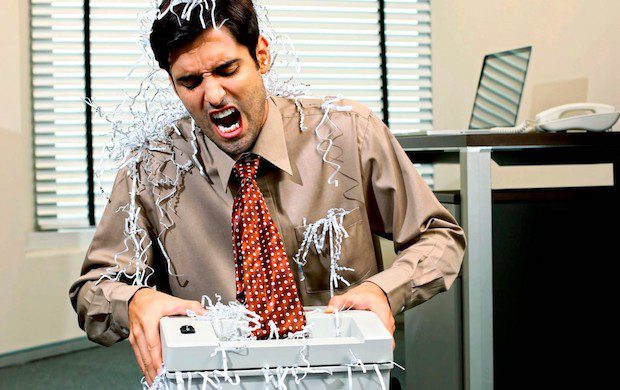Social media is promoted as being amazing for your career.
It’s supposed to lubricate your soul. Everybody tells you at work to build a personal brand and share interesting insights with your network. HR and marketing teams even run workshops at most companies to help employees use LinkedIn. Social media is one big happy picnic with cupcakes, sugar, that can cause your career to explode.
Nope.
There’s a dark side to social media.
Freedom of speech doesn’t matter in the corporate world
When I started one job I got told to stop posting on LinkedIn — or any social media platform. The ask took me by surprise. I wouldn’t give up writing even if you put a gun to my head. I live to write, not to work a job.
Social media is where we go to express ourselves. When we express ourselves we feel free. It helps us make sense of the world. It allows us to gain feedback. The corporate giant I worked for didn’t care.
Corporations want you to shut up, not have an opinion, get back to work, and not stand too tall (else they’ll slap you down to size). They want you to wait your turn, precious, until it’s time for your tiny promotion and $1k pay rise that doesn’t even keep up with inflation.
When I got told to shut up I pretended to listen. Then I kept writing on social media anyway. I covered my tracks by not tagging my employer on LinkedIn. There are times in life where you’ve got to go “fuggit … I’m doing it anyway.”
I got away with my LinkedIn addiction because, even though I can sometimes share polarizing opinions to make people think (not agree), I nailed the intent. My intent is to inspire people through writing. It’s hard for a corporation to argue with that. So they turned a blind eye as long as I didn’t name companies or people in my content.
Takeaway: Don’t name and shame in your content. You can get away with a lot at work when you resist the temptation. Plus, it’s an unofficial rule of the content creator’s code we all follow.
People think you’re a reporter. They run away.
I met one customer for coffee. The plan was to sell him a new piece of software for his department. All went well.
Two hours later, I got an email from the customer. My face lights up with delight. I can’t believe my luck. I’m ready to go and buy a lottery ticket. I open the email.
“Our conversation is private. Please don’t quote me in Business Insider or any other publication.”

Like what the hell? At no stage did I introduce myself as a journalist or pull out my phone to record the conversation. The guy panicked — as often spineless employees of the corporate mothership do.
If you publish content on social media people can think everything they say is being recorded. They may be less likely to open up, or, they may not even take a meeting with you out of fear you’ll turn their name into a headline. It’s stupid. But the capitalist machine makes people do dumb stuff. Be prepared.
Customers will think you’re too entrepreneurial
Early in my career I attended a customer meeting with another colleague. The client had an awesome business and I was excited to meet them — it felt like meeting Barack Obama.
We sat down. We got down to business. About 30 minutes into the meeting the customer asked me if I could leave for the last part.
Being marched out of the meeting room felt weird. Something was up. On the way back to the office I asked my colleague what went down.
“Look, don’t tell anybody what happened but he thinks you’re too entrepreneurial. He saw your LinkedIn and he’s worried you’ll steal his new business idea.”
My colleague told me the business idea, which was to sell cars through an app. It was dumb. A 5-year-old could have thought of it.
Making money causes people to do dumb stuff. It’s easy to think an idea is going to make you millions, when it’s actually the execution that makes all the money, that most entrepreneurs fail at.
“Too entrepreneurial” is a compliment. Yes, if you publish content on social media you are quietly entrepreneurial even if you don’t realize it. Content builds an audience. An audience may buy a book or digital product from you. Again, in the words of Sean Kernan, fuggit. Move on.
Egomaniacs get pissed off if you have a bigger audience than them
This one is weird. One boss told a colleague, who’s also a friend, that they hated my social media activity. Their problem? They wanted to do exactly what I was doing.
They’d wanted for their entire career to be a thought leader. I accidentally had done it even though I hate thought leadership. Their envy grew. They sabotaged my career. Eventually I got let go. They thought I didn’t know about their envy … I did.
Jealously is common in the corporate world. People do dumb stuff if they think you’re further ahead than them. What these people always do wrong is, get someone in trouble and then go and blab to other colleagues. Someone always leaks the information back to the person that is thrown under the bus.
Who cares how many followers a person has. Rather than be jealous, try to learn from them. Or at least be inspired by them.
Envy kills career joy.
This guy ruined his writing dream
I met two people while at one job who both wanted to write. It’s all they ever wanted. I helped them get started.
Two weeks later: “So did you publish anything yet?”
Both of them couldn’t do it. One was crippled by fear. The other person did something stupid.
“Hey boss, can I write every day on LinkedIn and talk about my work?”
Obviously their boss said no. They scared them half to death. They recited policies and shared horror stories. The poor guy could barely catch the train home after work without bursting into tears. Now he looks like the kid in the movie The 6th Sense who can’t stop saying “I see dead people” as if he has been haunted by ghosts.
Asking for permission in the corporate world is a no-no. You succeed at work when you assume the answer is yes and beg for forgiveness later.
Hidden background checks will find your content
Employers do background checks. There are tonnes of startups that provide data from the internet on an individual. Companies don’t tell you this.
As data continues to drive business, the inevitable will happen: if you publish content on social media then it will come up in background checks when you apply for new jobs.
I don’t even want to see my 5000-page readout. My name will get matched to keywords like heroin, porn, the f-word. That’s because I’ve written about people who are associated with these words, not because I’m a heroin addict. But in the corporate world you are guilty until proven innocent. In fact, you’re not even guilty. You’re simply damaged goods.
Here’s what is missed: your resume hides your opinion. Social media reveals it. Every company in the world can find out your political views if you’ve ever spoken about them online. Even if you delete your social media posts they can be found again. Look at finance genius Michael Burry’s deleted tweets that the SEC in America asked him to delete. They’re deleted. And they popped up again the next day. It’s called a screenshot. Sorry SEC.
One workaround for employees is to use a pen name. But a pen name is attached to an email address and a profile photo. Technology is smart enough to match both of those to a real name. Dah.
And pen names can be seen as weak. A pen name won’t get the same traction because the audience will never quite know if the content creator is a real person, or some angry troll being highly critical for the thrill of it.
I can never go back to a traditional job. Social media has put my personal and corporate brand through a paper shredder. No new boss would take the time to look hard enough and see the truth about me — that I just want to inspire people and make them think.
It’s easier for a potential employer to grab a fear-ridden newbie off the conveyer belt of LinkedIn jobs than it is to hire me. I get it.
The takeaway is this: If a company cares so much about what you do on social media, then you shouldn’t work for them. Social media is our basic human right to freedom of speech. We need to share our thoughts to progress conversations that advance society for the better.
Don’t let the corporate monster silence your creativity. It’s not worth it. There are other options.


